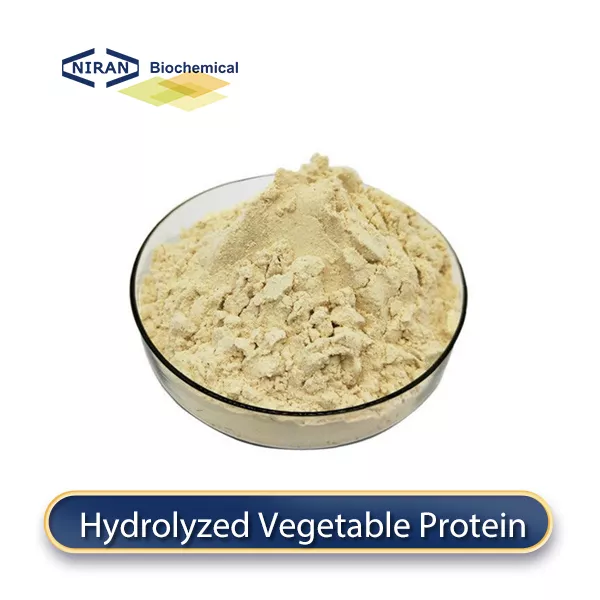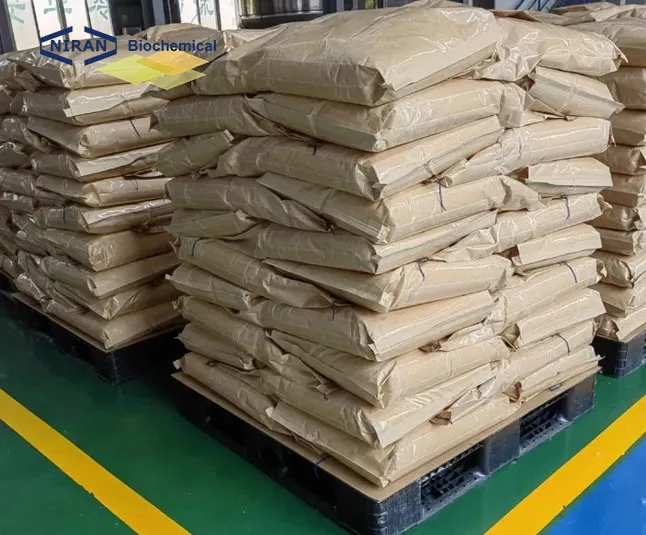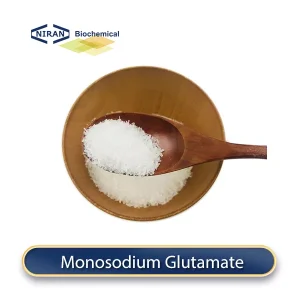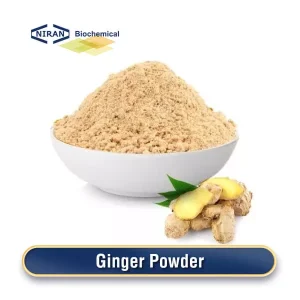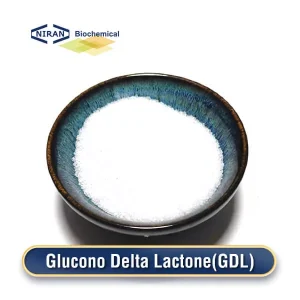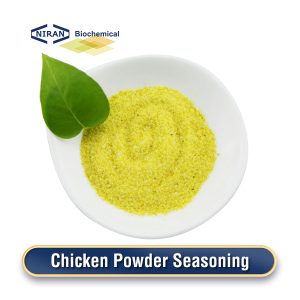What is Hydrolyzed Vegetable Protein?
Vegetable protein hydrolyzes when it is catalyzed by acid, producing hydrolyzed vegetable protein. It has a light yellow to yellow-brown powder appearance. It is also known as amino acid liquid since amino acids make up the majority of its contents. Its primary applications are in the production of meat flavoring raw materials and foundation ingredients for complex seasonings and fortified meals.
There are three main preparation processes for hydrolyzed vegetable protein in China:
1. Using strong acid (such as hydrochloric acid) to hydrolyze vegetable protein into amino acids and short peptides at high temperature. This method works well for industrial production on a big scale and is quick. The disadvantage is that some unhealthy by-products (such as chloropropanol) may be produced, which need to be removed by subsequent treatment.
2. Using strong alkali (such as sodium hydroxide) to hydrolyze vegetable protein into amino acids and short peptides at high temperature. The advantage of this process is that the operation is relatively simple and it is suitable for certain specific vegetable protein raw materials, but it may cause some amino acids to degrade or produce bad flavors, and the reaction conditions need to be controlled.
3. Using biocatalysts such as proteases to decompose vegetable proteins into amino acids and short peptides under suitable temperature and pH conditions. This preparation process has a mild reaction, is not easy to produce harmful by-products, and the product flavor and nutrition are well preserved. It is also the most mainstream and main preparation method in China.
Related parameters:
| ITEMS | STANDARD |
| Profile | Neutral Flavor |
| Taste | Salty With Umami Taste |
| Total Nitrogen (%) | Salty With Umami Taste |
| Amino Nitrogen (%) | ≥4.0 |
| Salt (%) | ≥2.5 |
| Moisture (%) | ≤42 |
| Ash (%) | ≤7.0 |
| 3-Chloro-1,2-Propanediol (Mg/Kg) | ≤50 |
| Lead (Pb) (mg/kg) | ≤1.0 |
| Arsenic (As) (mg/kg) | ≤0.5 |
| Total Heavy Metals (mg/kg) | ≤10 |
| STANDARD Plate Count (cfu/g) | ≤10000 |
| Coliforms (Mpn/G) | ≤3 |
| E.Coli / 10g | Negative |
| Yeast & Mould (cfu/g) | ≤50 |
| Salmonella /25g | Negative |
| Pathogen /10g | Negative |
Recommended dosage:
| Food name | Maximum usage(g/kg) |
| Seasoning sauce | 2.0-4.0 g/kg |
| Meat products | 1.0-2.5 g/kg |
| Jelly | 0.5-1.5 g/kg |
| Seasoning powder | 3.0-6.0 g/kg |
| Plant milk | 0.2-0.5 g/kg |
| Sauce | 1.0-2.0 g/kg |
| Cheese products | 1.0-2.0 g/kg |
| Fish products | 1.0-2.0 g/kg |
| Candy | 0.5-1.0 g/kg |
| Bakery products | 0.5-1.0 g/kg |
| Breakfast cereals | 0.5-1.0 g/kg |
Hydrolyzed Vegetable Protein has a wide range of uses
1. Enhance flavor: Hydrolyzed vegetable protein (HVP) has a variety of important functions and is widely used in the food industry. First, HVP can significantly enhance the flavor of food, improve the umami taste of food, and make it more delicious. This property makes HVP a common additive in condiments and ready-to-eat foods, which can improve the taste and taste experience of the product.
2. Improve taste: HVP can improve the texture and taste of food, making it smoother and richer. Especially in meat products and baked products, HVP can enhance the flavor of meat and improve the texture of baked products, making these foods more attractive to consumers.
3. Thickening and stability: HVP has thickening and stabilizing effects, which can increase the viscosity and structural stability of food and prevent separation or precipitation. This makes HVP play an important role in condiments and ready-to-eat foods, ensuring the consistency and stability of products during processing and storage.
4. Adjust taste: HVP can adjust the taste of food, balance various flavors such as sour, sweet, bitter and spicy, and make the overall flavor of food more harmonious. It can also mask the bad taste or odor in the raw materials, and improve the palatability and flavor level of the food.
5. Nutritional supplement: HVP contains a variety of amino acids, which can be used as a nutritional supplement in food to enhance the nutritional value of food. This makes HVP have an additional nutritional supplement effect in functional beverages and soy products, meeting consumers’ needs for nutrition and health.
User asked question:
Q: What are the benefits of hydrolyzed vegetable protein for the body?
A: Hydrolyzed vegetable protein (HVP) provides easily absorbed amino acids that help boost the immune system, improve digestive health, support muscle repair, and promote overall health.
It is suitable for people with poor digestion or allergies to common vegetable proteins, and can improve physical strength and athletic performance.

